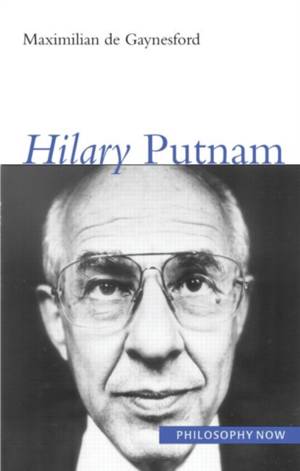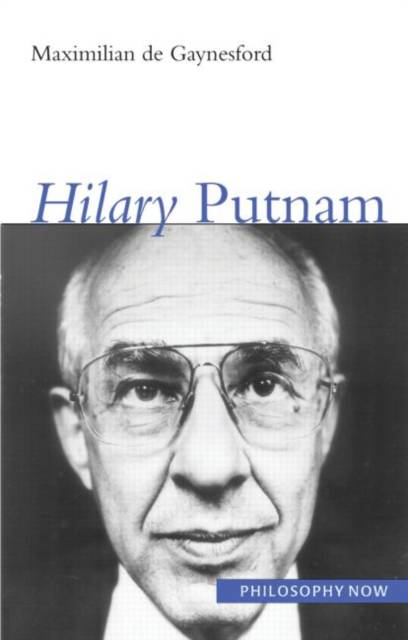
- Afhalen na 1 uur in een winkel met voorraad
- Gratis thuislevering in België vanaf € 30
- Ruim aanbod met 7 miljoen producten
- Afhalen na 1 uur in een winkel met voorraad
- Gratis thuislevering in België vanaf € 30
- Ruim aanbod met 7 miljoen producten
Zoeken
Omschrijving
Putnam is one of the most influential philosophers of recent times, and his authority stretches far beyond the confines of the discipline. However, there is a considerable challenge in presenting his work both accurately and accessibly. This is due to the width and diversity of his published writings and to his frequent spells of radical re-thinking. But if we are to understand how and why philosophy is developing as it is, we need to attend to Putnam's whole career. He has had a dramatic influence on theories of meaning, semantic content, and the nature of mental phenomena, on interpretations of quantum mechanics, theory-change, logic and mathematics, and on what shape we should desire for future philosophy. By presenting the whole of his career within its historical context, de Gaynesford discovers a basic unity in his work, achieved through repeated engagements with a small set of hard problems. By foregrounding this integrity, the book offers an account of his philosophy that is both true to Putnam and helpful to readers of his work.
Specificaties
Betrokkenen
- Auteur(s):
- Uitgeverij:
Inhoud
- Aantal bladzijden:
- 248
- Taal:
- Engels
- Reeks:
Eigenschappen
- Productcode (EAN):
- 9781844650408
- Verschijningsdatum:
- 21/02/2006
- Uitvoering:
- Hardcover
- Formaat:
- Genaaid
- Afmetingen:
- 138 mm x 216 mm
- Gewicht:
- 452 g

Alleen bij Standaard Boekhandel
+ 310 punten op je klantenkaart van Standaard Boekhandel
Beoordelingen
We publiceren alleen reviews die voldoen aan de voorwaarden voor reviews. Bekijk onze voorwaarden voor reviews.











